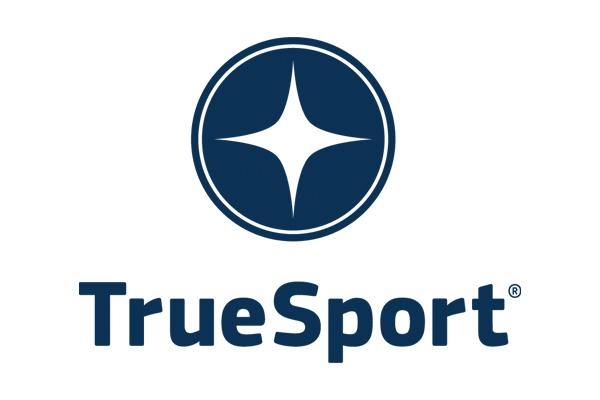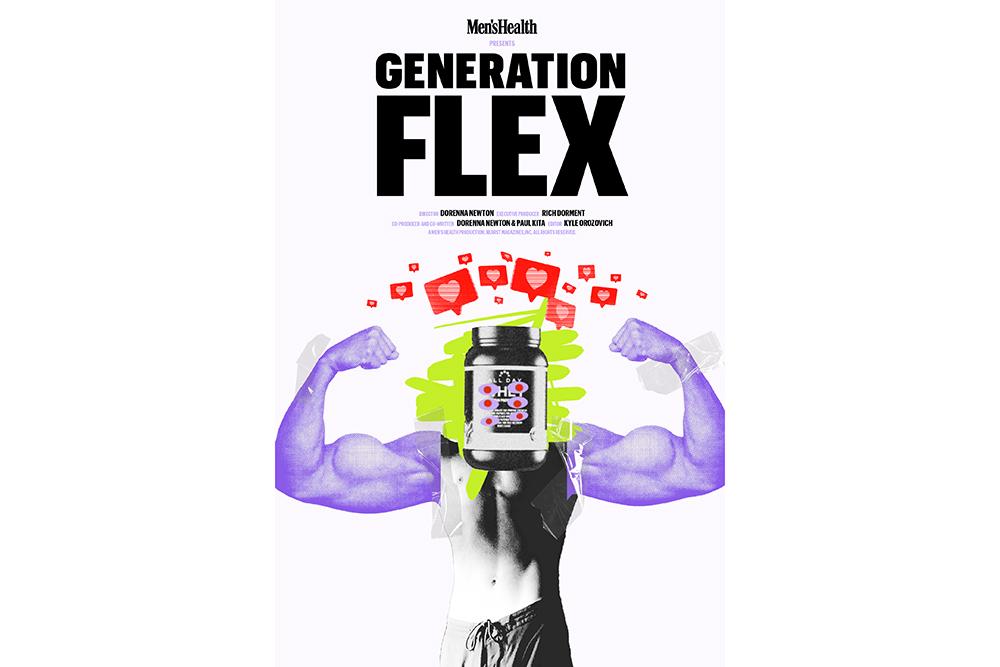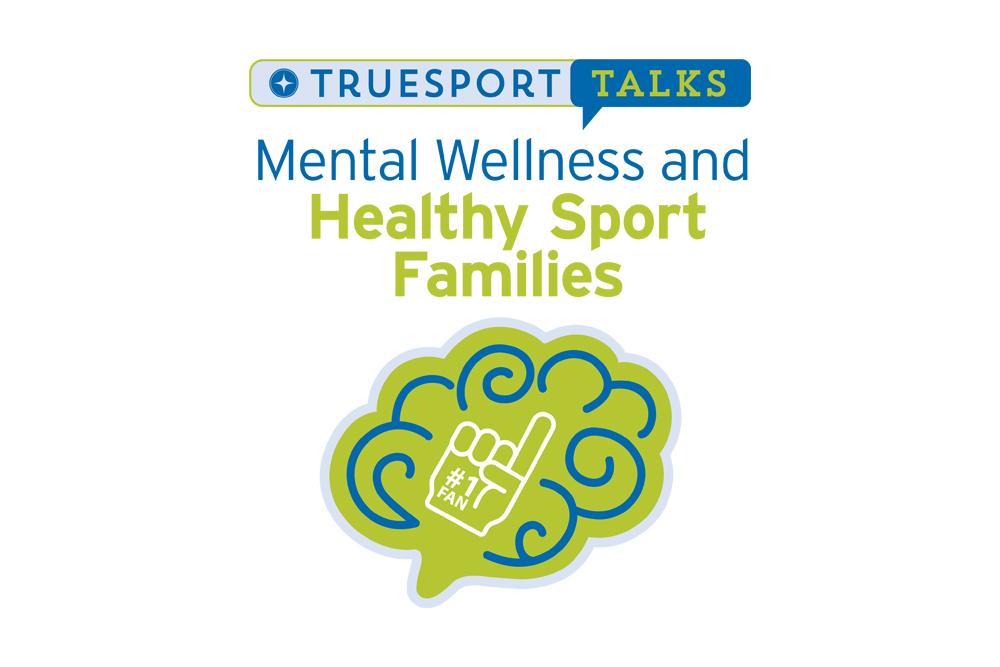TrueSport to Host Fifth Annual Symposium on Mental Wellness
What happens when you combine athletes, psychologists, medical practitioners, mental health experts, and sport leaders all committed to prioritizing athlete well-being? You get TrueSport Talks: Mental Wellness and Sport Systems, which will produce invaluable insights and tools on November 5 to help all those in the youth sport movement advocate for and implement systemic changes to better support athletes’ resilience, growth, and well-being.

All those who are a part of sport systems, from parents, to coaches, to sport leaders, have an obligation to acknowledge that sport can either be a profoundly supportive or destructive force in young people’s lives, depending on the structure and culture of their sport community. At the end of the day, we owe it to every single young athlete to tirelessly work toward practical solutions that help develop athlete resilience while offering systems that support athletes when they need it.
As we have seen in recent years, our young athletes continue to grapple with mental health and well-being. On site at the TrueSport Talks event telling their story will be the parents of one such athlete. Mark and Kym Hilinski, whose son Tyler died by suicide while in college as a D1 quarterback, explained that Tyler never showed signs of a mental health struggle, and he didn’t reach out for support.
The Hilinski family realized that if Tyler was afraid or unsure how to reach out for support, there must be so many other ‘Tylers’ out there suffering in silence. By sharing their story, the Hilinskis will demonstrate how supportive sport systems aren’t just ‘good to have’…they are absolutely critical and can be truly lifesaving.
And when it comes to preventing these kinds of tragic and devastating stories, the best defense often starts with a good offense. Enter Dr. Aaron Dinin, the Duke University professor (otherwise known as the TikTok Professor) whose Learning to Fail class has captured widespread recognition as he helps his students and millions of people online reframe their relationship with failure. And why does failure matter? Because it develops resilience.
“Repeated micro-failures build a psychological callus,” Dinin explains. “It makes the mind more flexible—and eventually ready for bigger loads.” Dinin adds that getting comfortable with failure can also boost mental well-being: If failure doesn’t feel like the end of the world, anxiety levels stay lower. Through sport, student-athletes can regularly practice failure in a relatively low-risk environment while learning how to regulate their emotions and develop effective coping responses.
There are also lifelong benefits that extend far outside of sport. “Figuring out why you missed the goal in soccer on Monday looks a lot like debugging a business pitch on Thursday,” Dinin says. A student-athlete who can fail and learn from it on the field is more likely to be able to handle the stress of a final exam or term paper.
There aren’t many athletes who understand the importance of learning from failure and challenges more than Anna Hall, a 24-year-old track and field Olympian who has battled injuries and overcome self-doubt amid a turbulent career. After missing out on the Tokyo Olympic Games and experiencing a disappointing finish at the Paris Olympic Games, Anna most recently enjoyed a career high, becoming the 2025 World Champion in the heptathlon. Following Jackie Joyner-Kersee, she is only the second American woman to secure a world title in the heptathlon. As we approach the benchmark of 100 days out from the next Olympic and Paralympic Games, athlete voices emerge as key drivers for meaningful change. At the event, Anna will share her stories of both struggle and triumph, providing a critical reminder at the start of the symposium that the courage to speak openly about challenges is the foundation for meaningful change.
From there, the symposium will address those who shape the systems surrounding athletes. Representatives from multiple sectors will come together to discuss the current state of support within sport and identify opportunities that remain underdeveloped. This dialogue places athlete needs front and center, aligning advocacy, medical best practice, and philanthropic innovation toward a shared purpose: creating structures that nurture mental health as diligently as physical performance. Those in attendance can expect to walk away with a clear set of expectations for their own sport communities that identify standards for healthier sport environments for all athletes.
After a collaborative exploration of failure and its role in building both individual and collective resilience, researcher Jess Kirby will then help translate these lessons into action, focusing on what each person—from coaches to administrators—can do immediately to make a difference in the lives of athletes. Kirby’s work underscores the necessity of systems-level accountability and evidence-based decision-making. While the recommendations are grounded in best practice and academic research, the takeaways are practical and immediately applicable for the average sport parent, coach, or administrator who values a healthy sport climate and culture.
The day will culminate in a forward-looking discussion that will highlight examples of systems that are already thriving. Their stories will showcase how cross-sector communication, resource sharing, and transparency can transform intention into impact, leaving participants inspired and equipped to drive change within their own communities.
“We may not immediately see ourselves as agents of change when we talk about “systems-thinking” and mental wellness in sport,” said Dr. Jennifer Royer, Senior Director of TrueSport and Awareness at the U.S. Anti-Doping Agency. “The problems or the challenges can seem bigger than any one individual or sport program. But what we learn from these discussions is that we each have a vital role to play and significant influence in improving our own children’s experience and changing the game for countless others when we prioritize the values and life skills learned through sport over performance and winning at all costs.”
More information about the event, sessions, and speakers is available here.
This event built off of the actionable takeaways and evidence-based recommendations from Mental Wellness and the Young Athlete in 2021, Mental Wellness and the Student-Athlete in 2022, Mental Wellness and the Modern Coach in 2023, and Mental Wellness and Healthy Sport Families in 2024.


